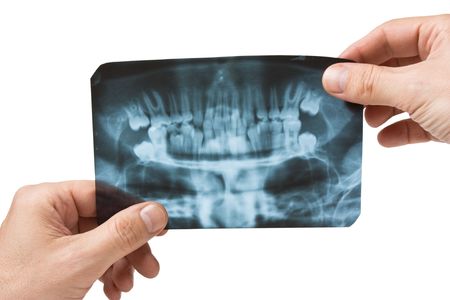Just like there are several variations of cracked teeth, there are also various signs and symptoms associated with having a cracked tooth. These can vary from having no visual evidence or discomfort at all to having a noticeable splitting of the tooth accompanied by severe pain. Often times people even find it hard to determine which tooth has been fractured as they have trouble pin pointing where the pain is coming from . Even a visit to the dentist may not determine which tooth is fractured as some fractures can be so small that they don’t even appear on an x-ray.

So how do you even know if one of your teeth has cracked and why is this important anyway?
Early Detection of a Cracked Tooth Is Important
Realizing that one of your teeth has cracked early on is very important. The earlier you can detect the issue, the less likely it is that you will require an advanced dental treatment like dental implants to restore your oral health. When one of your teeth cracks, it is essentially like getting an instant cavity on that tooth. With the protective enamel layer of the tooth cracked, it is easy for tooth decaying acids to get into the softer layer of dentin, and eventually even to the most delicate layer of pulp.
Not only will it be more likely for this to happen, once inside, it will be almost impossible to get the acids out of there. With little to stop these acids from eating away at the softer inner layers of the tooth, the decay will happen faster than normal, possibly resulting in getting a pulp infection, or even worse, an abscess. If this is the case, root canal therapy or tooth extraction will be required.

Even if the cracked tooth doesn’t get infected, waiting too long to fix it will make it more prone to getting further damaged. As you go on living with a cracked tooth, any type of blow to that tooth, like biting down on something hard, will most likely cause the crack to become larger, eventually becoming a split tooth.
Common Symptoms of Cracked Teeth
Although symptoms do vary quite significantly for cracked teeth, there are some common symptoms which are a good indication that one of your teeth may be cracked. If you notice any of these symptoms, make sure to visit a dentist right away so they can determine if one of your teeth has cracked:
- sharp pain when biting down, quickly disappearing once pressure is relieved
- sharp pain when your tooth is in contact with hot or cold temperatures
- pain while chewing on food, usually noticable when releasing pressure
- quick pains that happen sporadically
In some cases, there may not be any symptoms at all that one of your teeth is cracked until it is too late. This is just one more reason to see a dentist regularly.
Why do cracked teeth hurt?
The inner layer of pulp in your tooth is made of soft tissue, nerves and blood vessels. Surrounding this is a layer of dentin which is like a protective shell, but still not as hard as the outer most layer of enamel. When the enamel cracks, it exposes the layer of dentin to external forces. So every time you bite down on that tooth, the crack will cause irritation to the dentin layer, which in turn will affect the pulp, causing sensation in the nerve endings being experienced as pain.